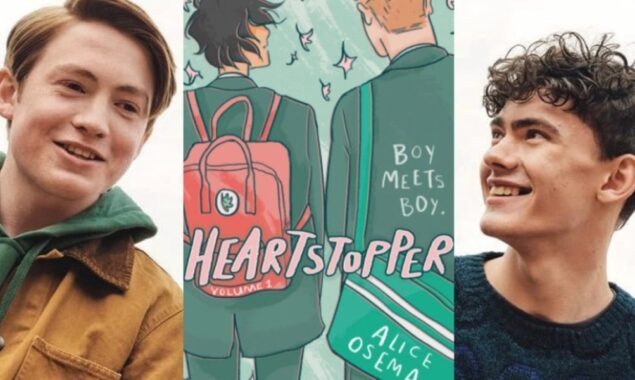
Heartstopper: Isn’t it past time for us to move on from the coming-out drama?
Coming out is a necessary aspect of the gay life. At the risk of painting a broad generalisation with a broad brush, I believe it’s safe to say that most of us in the LGBTQ+ community have a first story, or a series of tales, in which we revealed ourselves to the world. It’s how we distinguish ourselves as queers from everyone else, and it’s a process that lasts the rest of your life, whether you’re clicking a box on a survey or holding your partner’s hand.
Another well known truth is that coming out causes a lot of stress. Even in 2022, when the pain of discrimination is less intense than in previous decades, there is still an underlying recognition of that basic difference. Given the drama of it all — such as this week’s major Netflix movie, Heartstopper — it’s no wonder that coming out has traditionally been a ready point of return for gay storytellers.
Coming-out stories have undoubtedly served a valuable function throughout the years, but with such a large current flood of coming-out stories, one would ask if we’ve reached a saturation point. For one thing, it all feels a little done; more crucially, it feels as though other facets of the LGBT experience have been overlooked on screen unwittingly.
For example, in the 1990s, queer film was primarily concerned with two topics: AIDS, the most important sociopolitical storyline in contemporary LGBT history, and the then-relatively fresh concept of coming out. Many films combined the two (think of 1989 Oscar contender Longtime Companion, in which variously closed and open gay men deal with the first decade of the New York epidemic, or 1986’s indie darling Parting Glances), while others focused on the thorny issue of coming to terms with, and revealing, one’s sexual identity.
Think of 1998’s Get Real, about a geek and an athlete who fell in love at an English school — more on that later — or Edge of Seventeen, which came out the same year and deals with the hardships and tribulations of coming out amid Reagan’s anti-queer antagonism.
In the 2010s, there was a renewed interest in homosexual coming-of-age stories, with coming out as an unavoidable story beat. The main example in the established mould is 2017’s Call Me by Your Name, which follows a thin, curly-haired adolescent (played by a then-unknown Timothée Chalamet) as he discovers his queer sexual preferences (manifesting through desire for a man who may or may not have wanted to eat him).
Following Love, Simon (2018), a homosexual coming-of-age film set at a school that is remarkable more for being the first-ever LGBTQ+ studio picture than for its artistic qualities, Love, Victor, Heartstopper is another show among many about coming out (also movies, songs; put your artistic media here).
It stars a pair of newbies (Joe Locke and Kit Connor, previously seen as a young Elton John in Rocketman) as Charlie and Nick, loved-up youths in an all-boys secondary school set in modern-day Britain, and is adapted from a massively successful web comic drawn, surprisingly, by a college student. Charlie, who came out at the age of 13, is a bit of an outcast; Nick, on the other hand, is a star rugby player. In the eleventh year. Love, on the other hand, is irrational, illogical, and unconcerned with ridiculous scholastic hierarchies!
Read More News On
Catch all the Entertainment News, Breaking News Event and Latest News Updates on The BOL News
Download The BOL News App to get the Daily News Update & Follow us on Google News.




